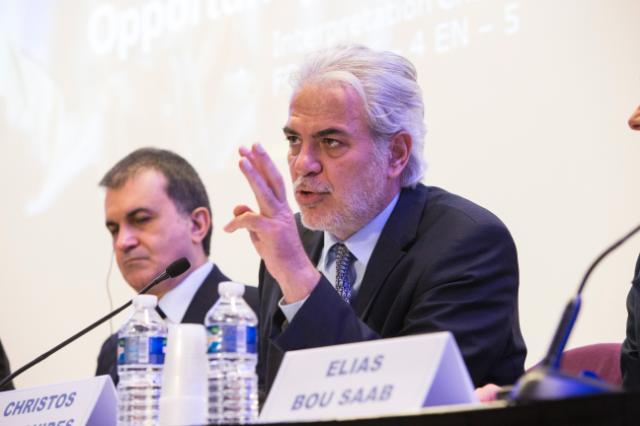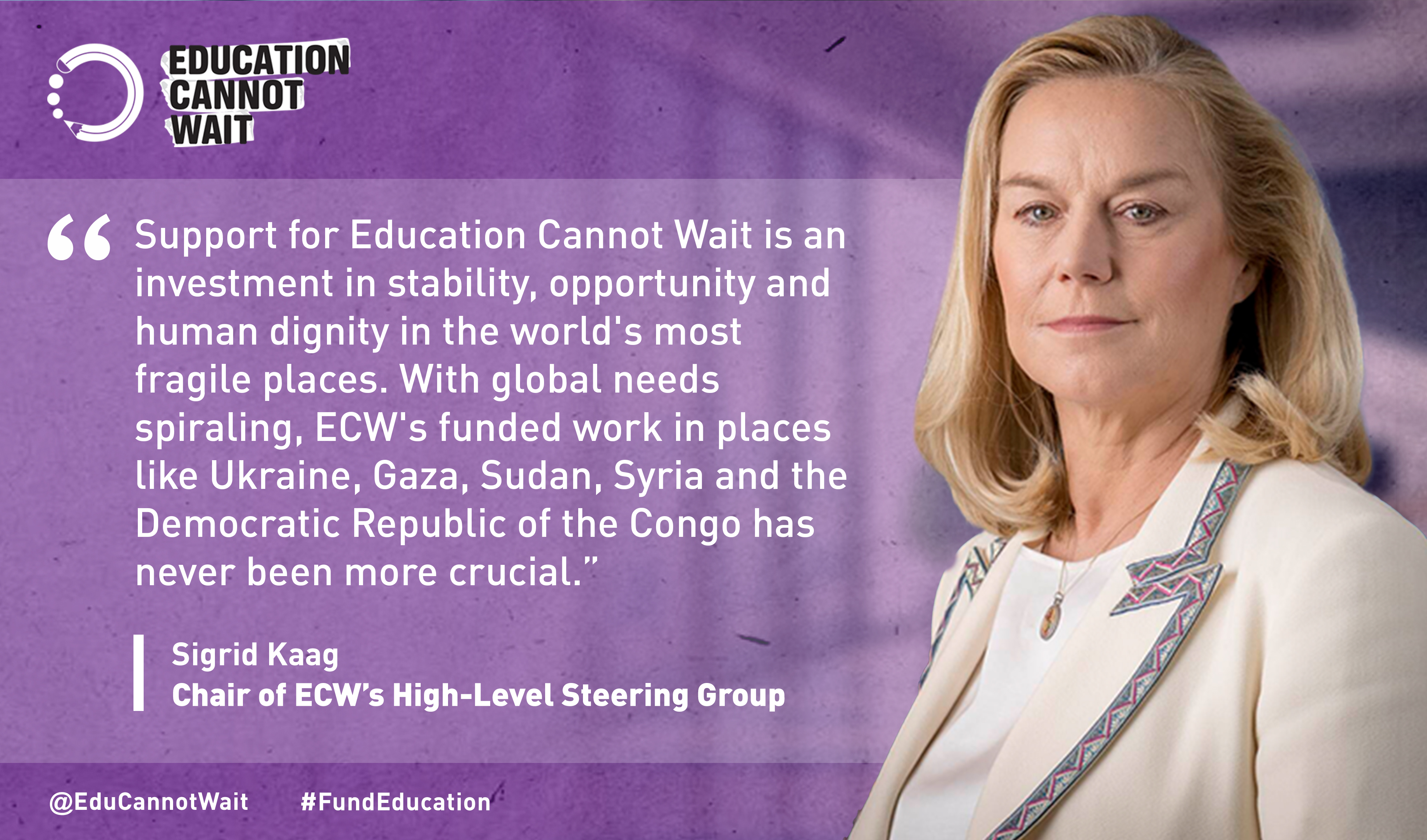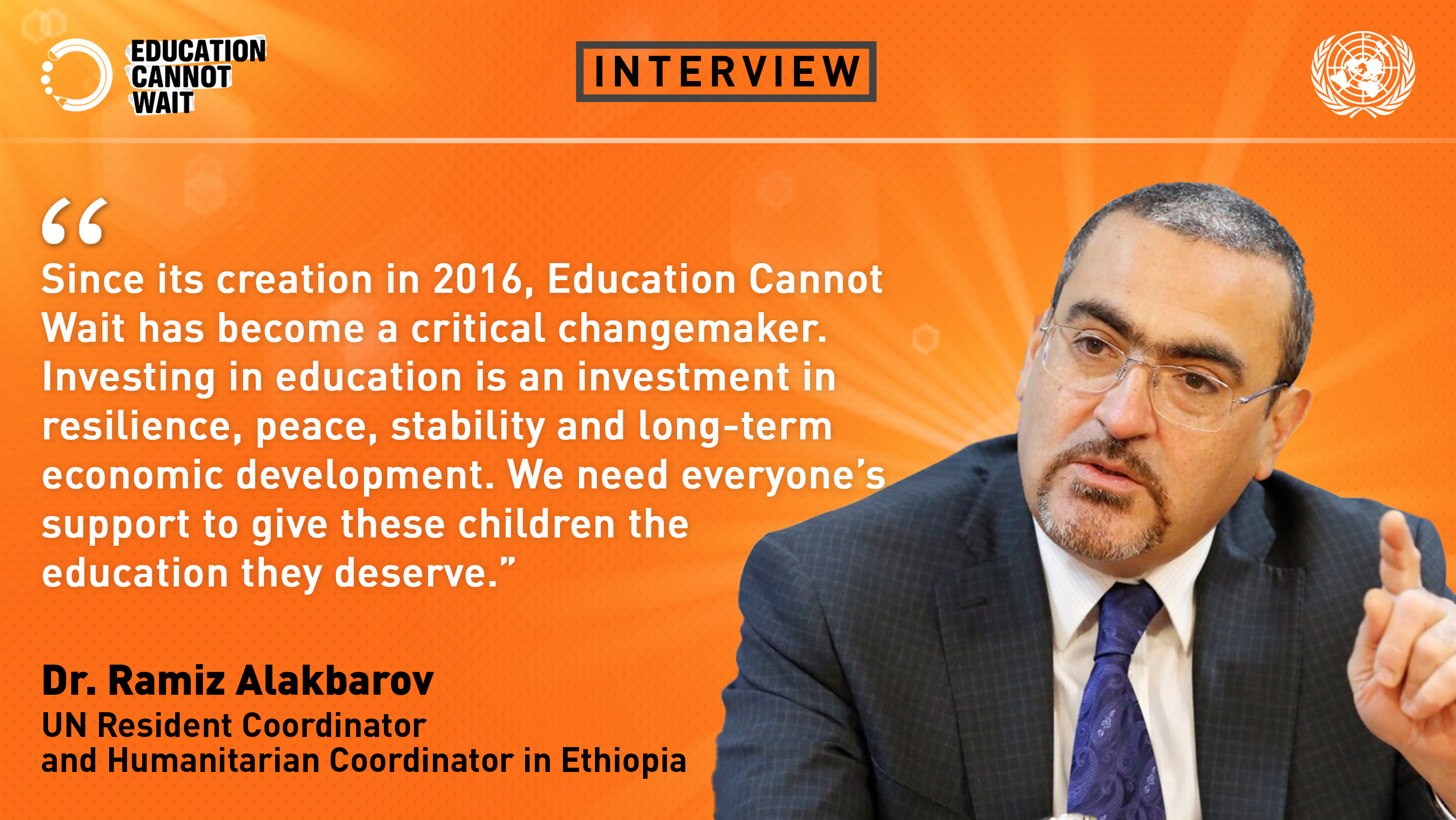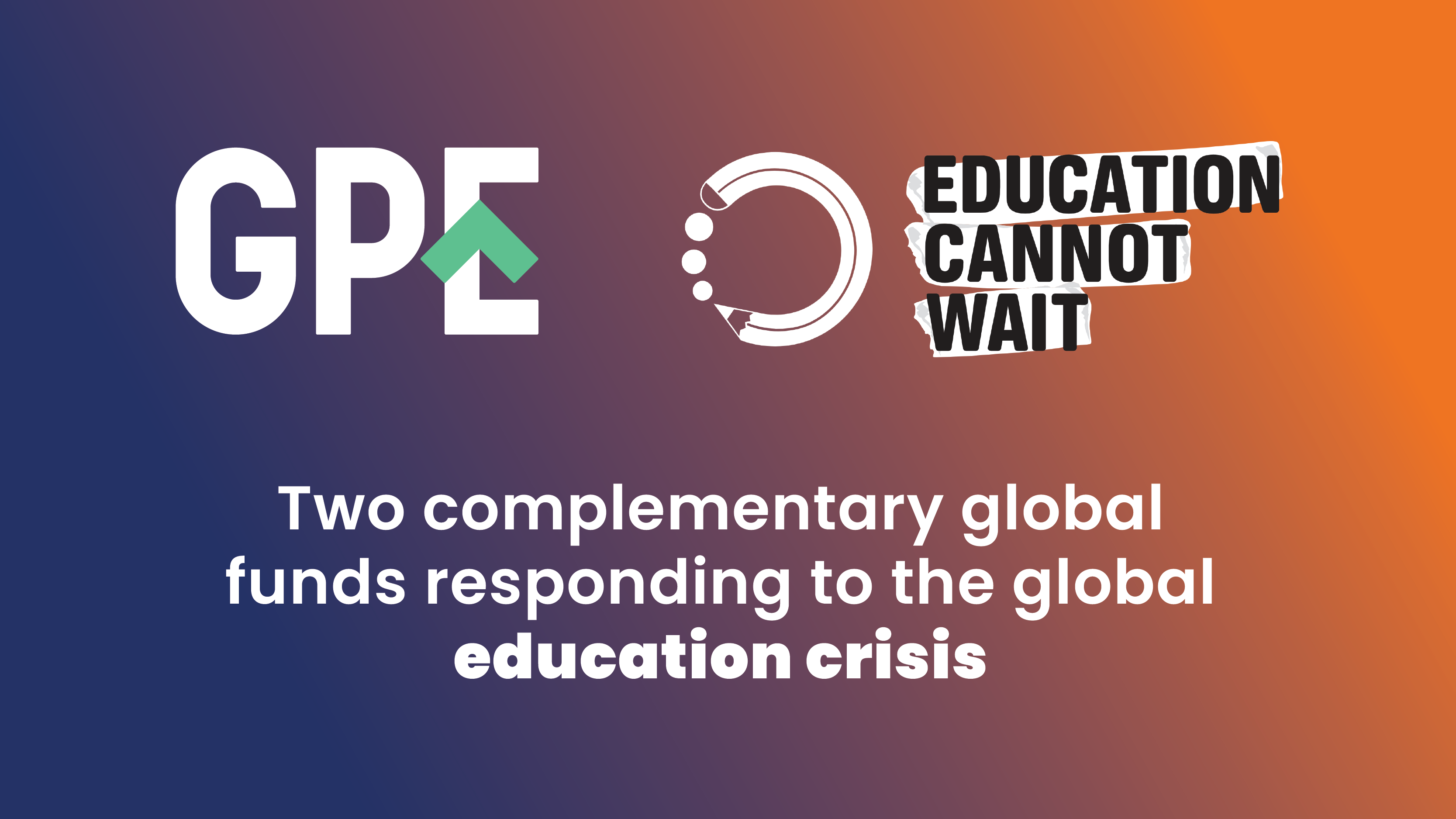Education in Emergencies: Eu Funding Helps Reach Historic Milestone

A global fund to educate children whose lives have been disrupted by emergencies last month received a critical boost from the European Union.
The European Commission, the executive body of the EU, announced on 30 November that it will increase its contribution to education in emergencies in 2017 to 6 per cent of its humanitarian aid budget. The increase comes on the heels of a 4 per cent contribution in 2016 and amounts to a six-fold increase since 2014.
The 2017 contribution makes the EU the world’s leading supporter of some of the world’s most vulnerable children and champions of cause that has been historically under-funded and under-appreciated – education in emergencies.
“By funding education, we can make a real investment in children’s futures and their hope for a better life,” said Christos Stylianides, the EU’s Commissioner for Humanitarian Aid and Crisis Management. “The EU is leading by example and I call on other international donors and stakeholders to step up their efforts worldwide.”
Mr Stylianides announced the EU’s commitment in Brussels at the Education in Emergencies Forum hosted by the European Commission. The forum brought together decision makers, humanitarian experts and practitioners to explore ways to support quality education for children affected by crises. In addition to Mr Stylianides, speakers included Gordon Brown, the United Nations Special Envoy for Education, Ömer Çelik, Turkey’s Minister for European Affairs, and Elias Bou Saab, Lebanon’s Minister of Education and Higher Education.
With the increase in its contribution, the EU is drawing attention to the importance of education in emergencies and mobilizing resources desperately needed to educate children in crises including wars and natural disasters. In the recently released report, ‘The Learning Generation’, the Education Commission called for all countries to follow the EU’s lead and increase the amount of money they earmark for education in emergencies to 4 to 6 per cent of their overall humanitarian aid contributions.
Throughout the world, the complexity and duration of crisis and displacement has required unprecedented humanitarian and development responses. However, funding has decreased as a proportion of development aid and humanitarian appeals. In the last decade, for example, the demand for education in emergency settings increased by 126 per cent, but only 4 per cent of the appeals made for Oversees Development Aid or humanitarian appeal funds were met.
The Education Cannot Wait fund was created in 2016 to bridge the gap between humanitarian aid and development assistance and provide funding for education in emergencies.
In his keynote address at the Education in Emergencies Forum, Gordon Brown said that recent humanitarian appeals have directed only two per cent of funding to education in emergencies. In contrast, the latest estimate is that the average time refugees are exiled from their country is 10 years.
The world, Brown said, “must answer why, for the most vulnerable, we do the least, and why, instead of guaranteed help, all we do is pass the begging bowl around at times of crisis.”
Though the EU remains committed to funding education in emergencies, the dramatic rise in the number of emergencies still strains resources. In its Communication on Forced Displacement and Development, the EU recognizes the importance of education in crises and the need for close cooperation between humanitarian and development sectors to ensure longer-term outcomes.
To achieve these goals, the Education Cannot Wait fund works to provide short-term humanitarian responses to education needs while providing development interventions that contribute to medium- and long-term goals.
Melding the goals of humanitarian aid and long-term development assistances demands a transformation of how education is provided to children during emergencies. Melding humanitarian and development goals will only be possible with the extraordinary levels of coordination and investment exhibited in the EU’s historic commitment to educating children in times of crises.
For more information, the Education in Emergencies Forum event page has been updated with the meeting report and the presentations projected at the stands during the EiE Café session. A video recording is available for the closing High-Level Panel.



